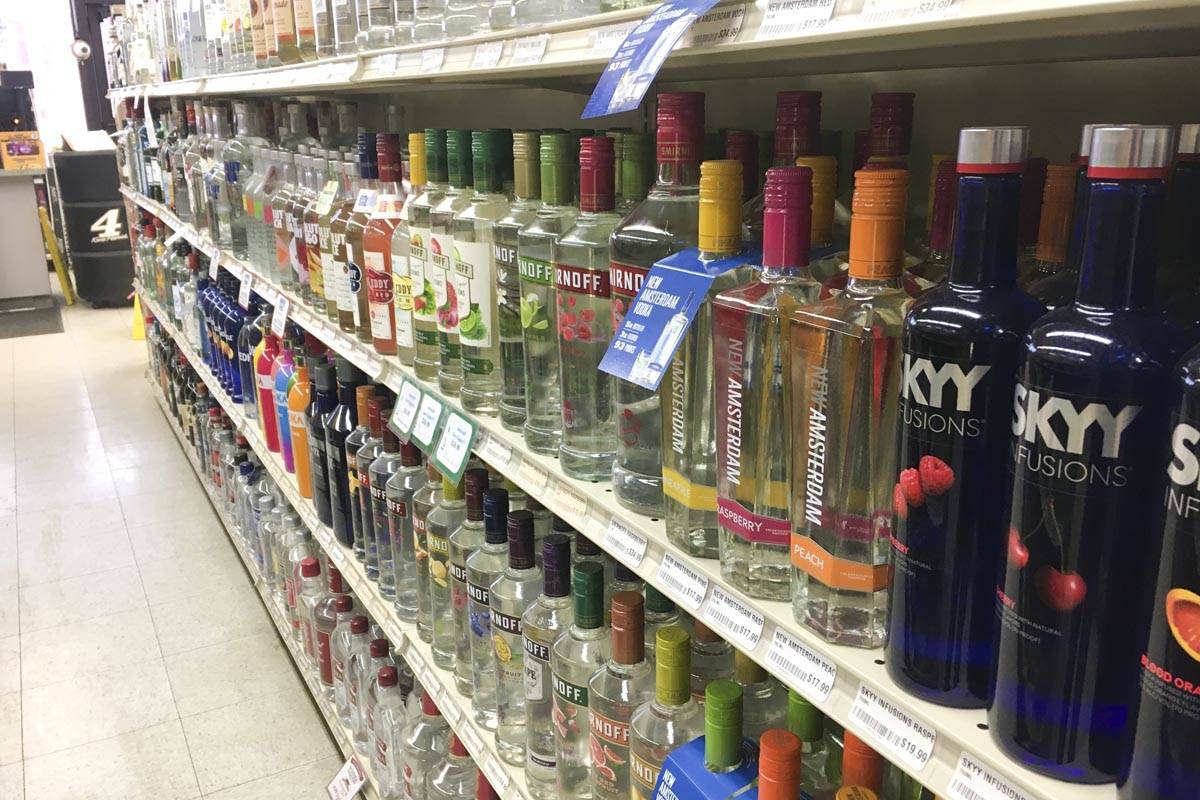Substance misuse is defined as the use of illegal drugs or inappropriate use of alcohol or prescription drugs.
And in Alaska it’s endemic.
“We see the impact of substance misuse every hour of every day in our ER,” said Bradley Grigg, the chief behavioral health office at Bartlett Regional Hospital in a phone interview. “The cost is enormous. From alcohol to opiates to methamphetamine to other substances, we are seeing the effects of substance misuse in every part of our hospital.”
A new study showed the combined cost of services, accidents and health care from substance misuse in 2018 was nearly $3.5 billion.
The McDowell Group, contracted by the Alaska Mental Health Trust Authority, found that more than 300,000 Alaskans 12 years of age or older reported recently drinking alcohol when surveyed. About half that many — 142,000 Alaskans — reported binge drinking in the last year. Alcohol consumed in Alaska during the yearlong survey period included 14 million gallons of beer, 2.4 million gallons of wine, and 1.8 million gallons of liquor.
“The majority of calls we go on are related to drugs and alcohol,” said Lt. Krag Campbell of the Juneau Police Department in a phone interview.
Drugs and alcohol can be an escalating factor in many incidents that lead to interaction with police and emergency services, Campbell said. Impaired driving can lead to DWI arrests or crashes. Dependencies can also lead to individuals with impaired judgments getting into altercations or stealing to support a substance misuse habit.
Campbell said the same habits can lead to costs in other ways. Loss of productivity at work, either from impairment or from being incarcerated, was one of the largest parts of the cost to Alaska, according to the study.
“It costs $158 a day to incarcerate somebody who has been convicted of some offense related to substance abuse,” said Don Habeger, a community coordinator with the Juneau Reentry Coalition. “When you’re involved in the criminal justice system, substance misuse manifests itself. It could be possession, it could be theft, it could be domestic violence.”
In the study, 22,000 Alaskans reported they’d used illegal drugs in the previous year, 14,000 reported using cocaine, 5,000 reported using methamphetamine and 3,000 reported using heroin. Marijuana was not part of the survey, as it is not illegal in Alaska.
The overall cost of these habits was derived from five direct costs: health care, criminal justice, traffic collisions, productivity loss and public assistance and social services. Of the $3.5 billion cost of substance misuse, $2.39 billion of this was related to alcohol abuse, the report says, and $1.06 billion is attributable to the costs associated with drug abuse.
“You have treatment,” Habeger said. “That certainly costs our community something. Whether it’s paid for out of city coffers or foundation coffers, it always costs something.”
The largest part of the costs came from health care costs, according to the report, at $1.33 billion, deriving primarily from inpatient costs and emergency services. Loss of productivity was the second largest part of the costs deriving from substance abuse. The majority of costs that fell under loss of productivity came from premature deaths in accidents and overdoses.
Campbell said that keeping a job with a serious substance misuse habit can be difficult, especially when one gets arrested and imprisoned.
“Substance misuse treatment is a really big piece of what we do and who we are,” Grigg said, speaking about BRH. “We recognize the need and the need is overwhelming.”
Grigg praised a supportive board and community as BRH handles the substance misuse issues present in Juneau, and from people who come to BRH from all over the state.
“I can tell you that a significant number of people who come in with mental health issues also come in with substance misuse issues,” Grigg said. “One of the things we’re doing because the need is so significant in our community, we’re looking at some federal opportunities.”
Treatment facilities are present in Juneau, though not as many as some would wish. BRH itself offers detox services, in addition to inpatient and outpatient treatment services. The Rainforest Recovery Center at BRH costs $2.5 million to operate annually, Grigg said.
“I know Juneau is known for its lack of treatment facilities,” Campbell said. “Trying to get more treatment facilities to get the people off those addictions could help costs in the long run. The goal is to help people.”
• Contact reporter Michael S. Lockett at 757-621-1197 or mlockett@juneauempire.com.

